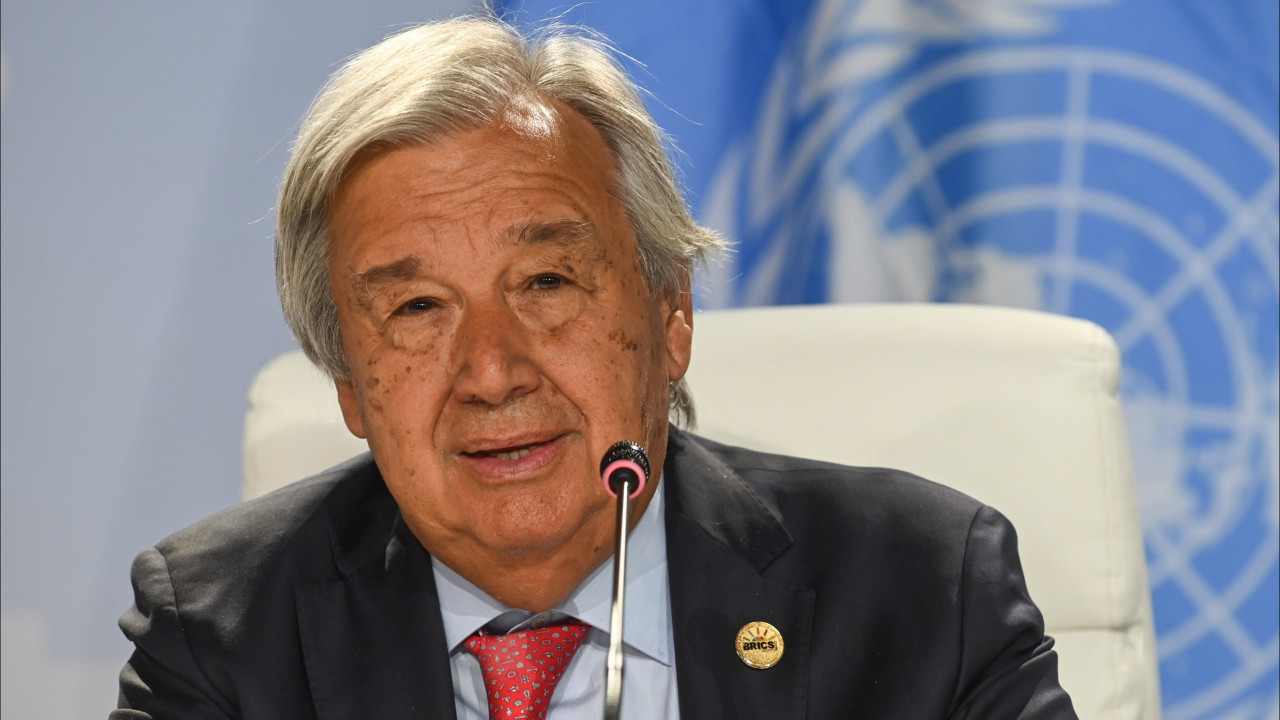
“A The fundamental question is: Will we be able to get enough aid in to keep people alive? We have already made it very clear that, unless things change radically for the better, the answer is no (…). We need to see improvements in many different areas,” said Deputy Spokesperson Farhan Haq when asked at a press conference about the effectiveness of the new dock.
The maritime humanitarian corridor will make it possible to deliver around 500 tons of aid in two days and help more than two million people at risk of hunger, according to the United States Department of Defense (Pentagon).
But Guterres’ deputy spokesman stressed that “given the enormous needs in Gaza”, the corridor “is intended to complement land crossing points (…), namely Rafah, Kerem Shalom and Erez”, but “not the replace any of them.”
Haq assured, however, that the UN is “grateful” to the United States, Cyprus and other states for having helped to create the so-called “maritime corridor”, a mechanism that the United Nations will support “as long as it respects neutrality and independence of humanitarian operations”.
In the numerous questions asked about the new artificial dock, it was clear that there are still many questions about how it will work, mainly related to safety.
For example, regarding whether the Israeli Army will provide protection to humanitarian columns leaving the dock into Palestinian territory affected by an Israeli offensive for more than seven months, Farhan Haq limited himself to responding that “mechanisms of security” and that we will now check “how they work”.
International aid, strictly controlled by the Israeli authorities, was already arriving in a trickle, but its entry into the Gaza Strip is now practically blocked at the two main border crossing points – Kerem Shalom, from Israel, and Rafah, through which fuel used to be transported from Egypt.
Today, António Guterres’ deputy spokesperson stressed that humanitarian aid “cannot and should not depend on a floating dock, far from the places where the needs are most acute”, because whether the aid arrives “by sea or by road, without fuel, it will not reach the people who need it”.
On October 7 last year, Israel declared a war in the Gaza Strip to “eradicate” the Palestinian Islamist movement Hamas after it, hours earlier, carried out an attack of unprecedented proportions on Israeli territory, killing more than 1,170 people in majority civilians.
The Islamic Resistance Movement (Hamas) — in power in Gaza since 2007 and classified as a terrorist organization by the United States, the European Union and Israel — also took more than 250 hostages, 125 of whom remain in captivity and 37 have died in the meantime, according to the most recent assessment of the Israeli Army.
The war, which today entered its 224th day and continues to threaten to spread throughout the entire Middle East region, has so far left more than 35,300 dead in the Gaza Strip, 79,000 injured and around 10,000 missing, presumably buried in the rubble, in mostly civilians, according to updated figures from local authorities.
The conflict has also caused nearly two million people to be displaced, plunging the overpopulated and poor Palestinian enclave into a serious humanitarian crisis, with more than 1.1 million people in a “situation of catastrophic hunger” that is claiming victims – “the highest number ever recorded” by the UN in studies on food security in the world.
Also Read: Modi reveals secret talks with Israel for ceasefire in Gaza

Download our free App.
Eighth consecutive year Consumer Choice for Online Press and elected product of the year 2024.
* Study by e Netsonda, Nov. and ten. 2023 product of the year – pt.com
Source: https://www.noticiasaominuto.com/mundo/2563246/guterres-considera-doca-artificial-insuficiente-para-necessidades-de-gaza



